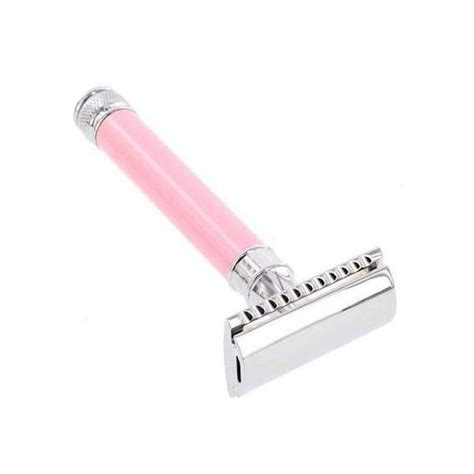Optimize breath: What’s the best routine for all-day professional freshness?

The Unseen Professional Asset: Why Breath Matters
In the competitive professional landscape, every detail contributes to your overall impression. While attire, posture, and communication skills are often highlighted, the subtle yet powerful impact of fresh breath is frequently overlooked. Bad breath, or halitosis, can undermine confidence, hinder social interactions, and create an uncomfortable barrier in meetings or client discussions. Achieving “all-day professional freshness” isn’t about masking odors; it’s about a comprehensive strategy that tackles the root causes, ensuring you exude confidence from morning coffee to evening engagements.

Your Morning Ritual: Laying the Foundation
The cornerstone of all-day fresh breath begins with a meticulous morning routine. This isn’t just about a quick brush; it’s a multi-step process designed to eliminate bacteria and set you up for success.
- Thorough Brushing (2 minutes): Use a fluoride toothpaste and brush all surfaces of your teeth, paying attention to the gum line. Electric toothbrushes are often more effective at plaque removal.
- Flossing is Non-Negotiable: Flossing removes food particles and plaque from between teeth and under the gum line, areas your toothbrush can’t reach. This is critical for preventing bacterial buildup that leads to odor.
- Tongue Cleaning: Your tongue is a major harbor for odor-producing bacteria. Use a tongue scraper or the back of your toothbrush to gently scrape your tongue from back to front several times. You’ll be surprised at what comes off!
- Antiseptic Mouthwash: Finish with an alcohol-free antiseptic mouthwash to kill remaining bacteria and provide an initial burst of freshness. Avoid alcohol-based rinses as they can dry out your mouth, potentially worsening bad breath in the long run.

Mid-Day Refresh: Combatting Post-Lunch Odors
Even the most rigorous morning routine can falter after meals and drinks. A strategic mid-day refresh is essential to maintain professional freshness.
- Hydrate Constantly: Dry mouth is a major contributor to bad breath. Sipping water throughout the day helps wash away food particles and bacteria, stimulates saliva production, and keeps your mouth moist.
- Quick Brush or Rinse (Post-Meal): If possible, a quick brush after lunch is ideal. If not, a thorough rinse with water or a small, portable mouthwash can remove food debris.
- Sugar-Free Gum or Mints: Chewing sugar-free gum stimulates saliva flow, which naturally cleanses the mouth. Opt for varieties containing xylitol, which inhibits bacteria growth. Keep a discreet supply in your desk or bag.

Evening Maintenance: Sustaining Oral Health
Your evening routine is crucial for cleaning up the day’s accumulation and preparing for tomorrow. It should mirror your morning routine in its thoroughness.
- Repeat Brushing & Flossing: Don’t skip these vital steps. Remove all plaque and food debris before going to bed, as bacteria thrive in a dormant mouth.
- Consider a Water Flosser: For an extra level of clean, a water flosser can be an excellent addition to dislodge particles and massage gums.
- Evaluate Oral Health: This is a good time to check for any unusual mouth sores, bleeding gums, or persistent bad taste, which might warrant a dental visit.

Dietary and Lifestyle Considerations
Beyond direct oral hygiene, certain dietary choices and lifestyle habits significantly impact your breath.
- Watch What You Eat: Foods like garlic, onions, and certain spices can cause temporary but potent bad breath as their oils enter your bloodstream and are expelled through your lungs. While they can’t always be avoided, be mindful of them before important meetings.
- Limit Coffee and Alcohol: Both can dry out your mouth and contribute to bad breath. If consumed, follow up with water.
- Quit Smoking: Smoking is a primary cause of chronic bad breath, stains teeth, and significantly increases the risk of gum disease and oral cancer.

When to Seek Professional Help
Despite a diligent routine, persistent bad breath can sometimes signal underlying health issues. If you consistently struggle with halitosis, consult your dentist. They can identify dental problems like cavities, gum disease, or oral infections. If no dental cause is found, your dentist might refer you to a physician, as bad breath can also be a symptom of conditions like sinus infections, acid reflux, or even systemic diseases.
Conclusion: Invest in Your Confidence
Optimizing your breath for all-day professional freshness is more than just a hygiene task; it’s an investment in your personal brand and professional confidence. By adopting a consistent, multi-pronged approach to oral care, staying hydrated, being mindful of your diet, and knowing when to seek expert advice, you can ensure your breath is always an asset, never a liability. Step into every interaction with the assurance that your professionalism extends to every detail.








